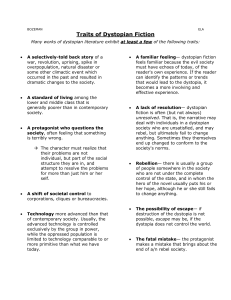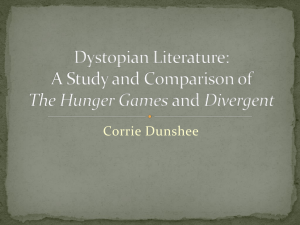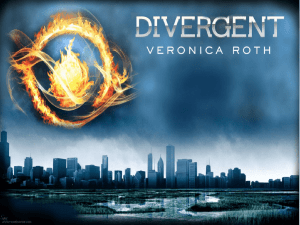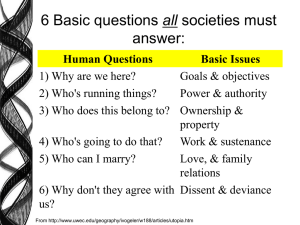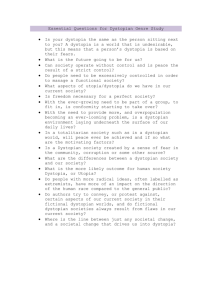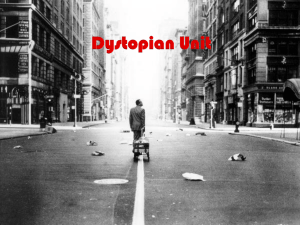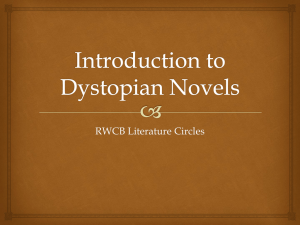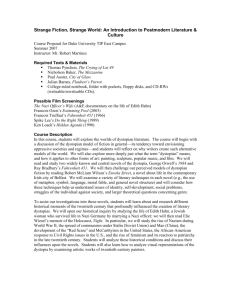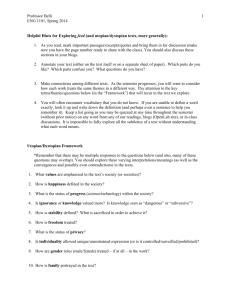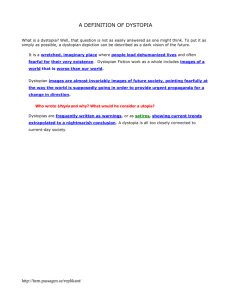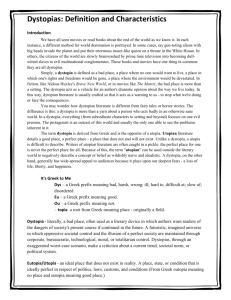dystopia
advertisement
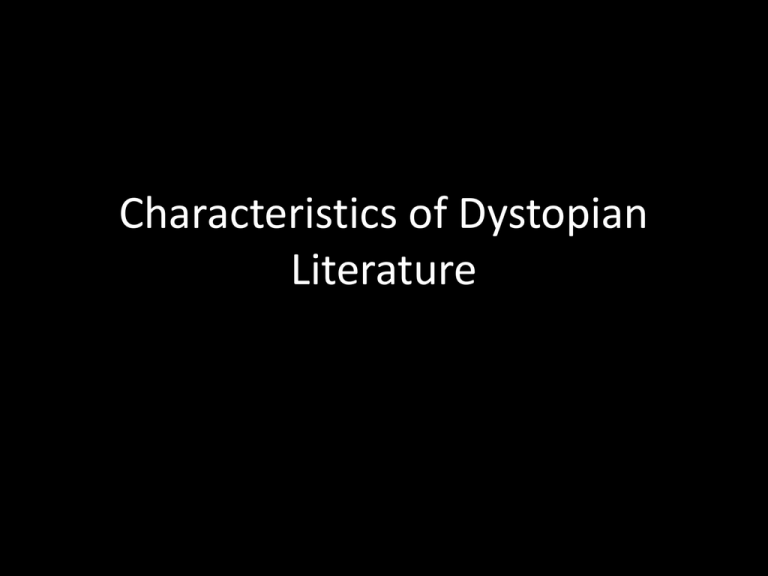
Characteristics of Dystopian Literature Dystopia • Dys = bad • Topia = place What’s the opposite of a dystopia? Dystopia In literature, a dystopia is a futuristic, imagined universe in which oppressive societal control and the illusion of a perfect society are maintained through corporate, bureaucratic, technological, moral, or totalitarian control. Dystopias, through an exaggerated worst-case scenario, make a criticism about a current trend, societal norm, or political system. Characteristics of Dystopian Society • Propaganda is used to control the citizens of society • Information, independent thought, and freedom are restricted Turn to your table partner and point to an example of this in The Hunger Games. Characteristics of Dystopian Society • A figurehead or concept is worshipped by the citizens of the society Name the figurehead or concept that is worshipped by the society in Hunger Games. Characteristics of Dystopian Society • Citizens are perceived to be under constant surveillance Turn to your table partner and point to an example of this in The Hunger Games. Characteristics of Dystopian Society • Citizens live in fear of the outside world • The natural world is banished and distrusted Characteristics of Dystopian Society • Citizens live in a dehumanized state Characteristics of Dystopian Society • Citizens conform to uniform expectations. Individuality and dissent are bad. Characteristics of Dystopian Society • Society is an illusion of a perfect utopian world. Listen to each of the following value statements silently. After taking a few seconds to think about it, head towards the pod door if you agree with the statement. Head towards the window if you disagree. If you have mixed feelings, stay in the center of the room. Young adults crave stories of broken societies because they are aware that their own world is falling apart Teenagers who love dystopian themes are the ones who don’t have to face them. Teenagers wouldn’t enjoy dark fiction if they lived in a culture where violent death was a major concern. Fear is necessary for society. Without fear of punishment, most people would not follow society’s rules. Schools are places where teens are subject to dress codes, have few free speech rights, are constantly under surveillance, where they sit and rise at the sound of the bell. Surveillance keeps us safe. The only people who need to worry about it are criminals. Surveillance is a violation of privacy and personal freedom.
